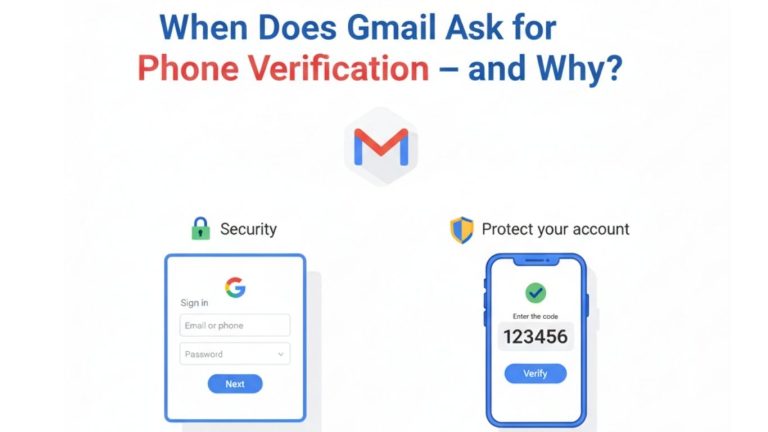
While Gmail remains a top email platform, its limitations—like data tracking, ads, and occasional account restrictions—are prompting many users to look for alternatives. Whether you’re concerned about privacy, want an ad-free inbox, or need a feature-rich experience tailored to professional use, there are excellent free Gmail alternatives in 2025 to consider.
This guide explores top-rated email services that provide strong security, ample storage, and seamless usability—all without costing a dime. And if you’re a digital marketer, social media manager, or business owner managing multiple email accounts, check out our service to buy Gmail accounts and streamline operations instantly.
1. Proton Mail – Swiss Privacy and Simplicity
Proton Mail is one of the best-known Gmail alternatives because of its end-to-end encryption and privacy-first design.
Key Features:
- Based in Switzerland, beyond EU and US data surveillance
- Emails are encrypted, even Proton can’t read them
- No ads, no tracking
- Open-source, audited code
- Free version includes 1 GB storage
Ideal for activists, journalists, and privacy-minded users, Proton Mail is also recommended in our Gmail vs. privacy-focused email article.
2. Tuta (Formerly Tutanota) – Germany’s Open-Source Private Email
Tuta offers an extremely minimal and clean UI with complete encrypted email communication, including calendar and contact encryption.
Highlights:
- No phone number required
- Zero ads
- Encrypted calendar and contacts
- 1 GB free storage
- Apps for all platforms
If you’re serious about privacy and looking for a European-built Gmail replacement, Tuta is a stellar pick. Bonus: no JavaScript tracking.
3. Zoho Mail – Business-Level Free Email
Want something powerful like Gmail but with professional tools and domain support? Zoho Mail is an ideal solution for freelancers and small teams.
Benefits:
- 5 GB per user in free tier
- Custom domain email (e.g., yourname@company.com)
- Integrated with Zoho’s CRM, Calendar, and Drive
- No ads even in the free plan
Zoho is a great fit if you’re building a brand. For growing your outreach further, check out our piece on Gmail vs. Yahoo vs. Outlook for email marketing.
4. Outlook.com – Microsoft’s Powerhouse Platform
Backed by the tech giant Microsoft, Outlook.com offers a clean and reliable interface with strong integration with Office tools.
Why Consider It:
- 15 GB free storage
- Seamless access to Word, Excel, and PowerPoint
- “Focused Inbox” helps manage clutter
- Strong anti-spam and phishing protection
Although it shows ads in the free version, the utility it provides—especially for Windows users—is extensive. If you’re customizing your inbox layout, compare this to our guide on how to customize Gmail inbox for usability.
5. Mail.com – Personalized Domains and Massive Choice
Mail.com offers over 100 domain name options to suit various professions and personalities.
Standouts:
- 100+ domain choices (e.g., @musician.org, @techie.com)
- 2 GB free storage
- Built-in antivirus and spam filters
- Online Office Suite
Mail.com’s domain diversity makes it excellent for niche branding and separating personal and professional communication—perfect if you’re running campaigns using bulk email accounts.
6. Yahoo Mail – 1 TB Storage for Free
Yahoo may seem old-school, but in 2025, it’s back with a bang—offering 1 TB of free storage, far surpassing most competitors.
Pros:
- Generous storage (1 TB)
- Disposable email aliases
- Integrated calendar, news, and finance dashboards
- App customizations for folders and themes
Check out our Gmail account deletion guide if you’re planning to make Yahoo your new email base.
7. GMX Mail – Big Storage with Cloud Extras
GMX Mail is especially popular in Europe. It’s a no-frills service with large inbox storage and integrated cloud file storage.
Features:
- 65 GB email storage
- 2 GB cloud file storage
- Virus protection
- File sharing
If you’re archiving files or emails regularly, GMX offers a Gmail-free alternative with plenty of room to grow.
8. iCloud Mail – Apple’s Secure and Integrated Service
If you use iPhones, MacBooks, or iPads, iCloud Mail offers the most seamless experience.
Perks:
- 5 GB shared iCloud storage
- Clean, ad-free interface
- Tightly integrated with Apple apps
- Secure Apple login for peace of mind
Explore how to make the most of your inbox with our Gmail setup for beginners post, then decide if iCloud or Gmail suits your ecosystem better.
9. Yandex Mail – Powerful with Translation Support
Yandex offers some Google-like features such as built-in translation and cloud drive storage, but it’s more privacy-conscious than Gmail.
Key Offerings:
- 10 GB storage
- Translation and smart search
- Calendar and cloud drive
- Anti-virus scanning
If you’re doing international marketing or multilingual outreach, Yandex gives you tools without Gmail’s surveillance baggage.
10. Skiff Mail – Decentralized, Encrypted, and Future-Ready
New but noteworthy, Skiff is like Proton on steroids with added productivity tools and decentralization.
What Makes It Special:
- End-to-end encryption
- Collaborative document editing
- Decentralized architecture
- Privacy by design
Looking for encrypted email plus privacy-preserving Docs? Skiff is shaping up to be a Gmail disruptor.
Final Thoughts
Whether you’re switching due to privacy concerns, spam overload, or just craving a fresh interface, 2025 offers excellent Gmail alternatives. From encrypted email providers like Proton and Tuta, to feature-rich services like Zoho and Outlook, the market is full of powerful, free options.
Considering a Gmail break-up? Be sure to back up your Gmail data before you go. Or if you’re starting fresh, you can buy Gmail accounts in bulk for marketing, outreach, or affiliate campaigns.
Also, explore our full range of services:
Find your fit, switch smart, and scale with confidence.

